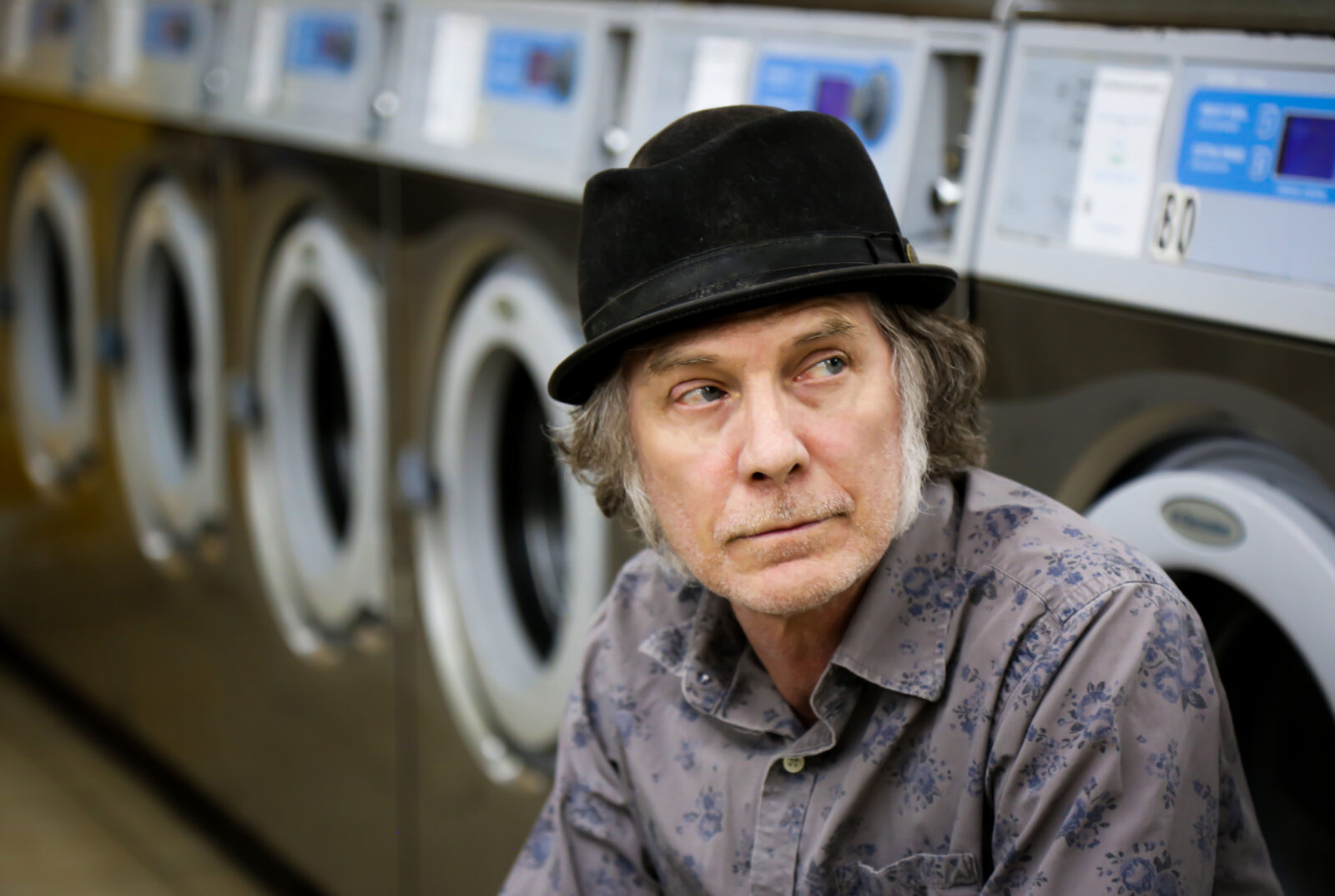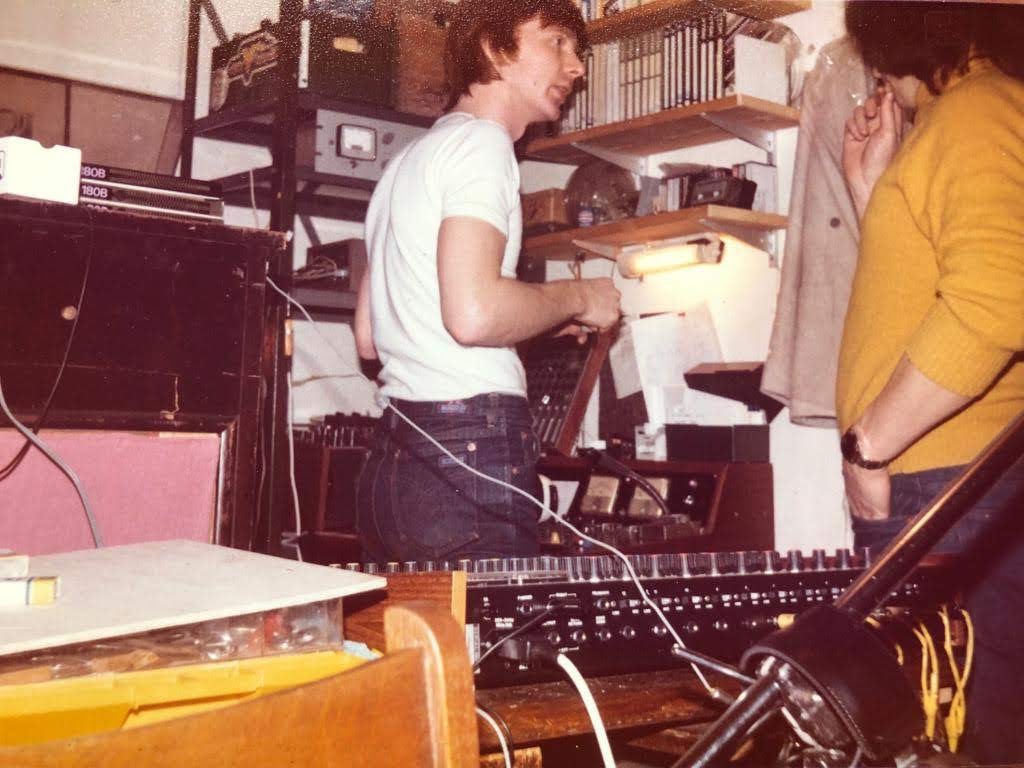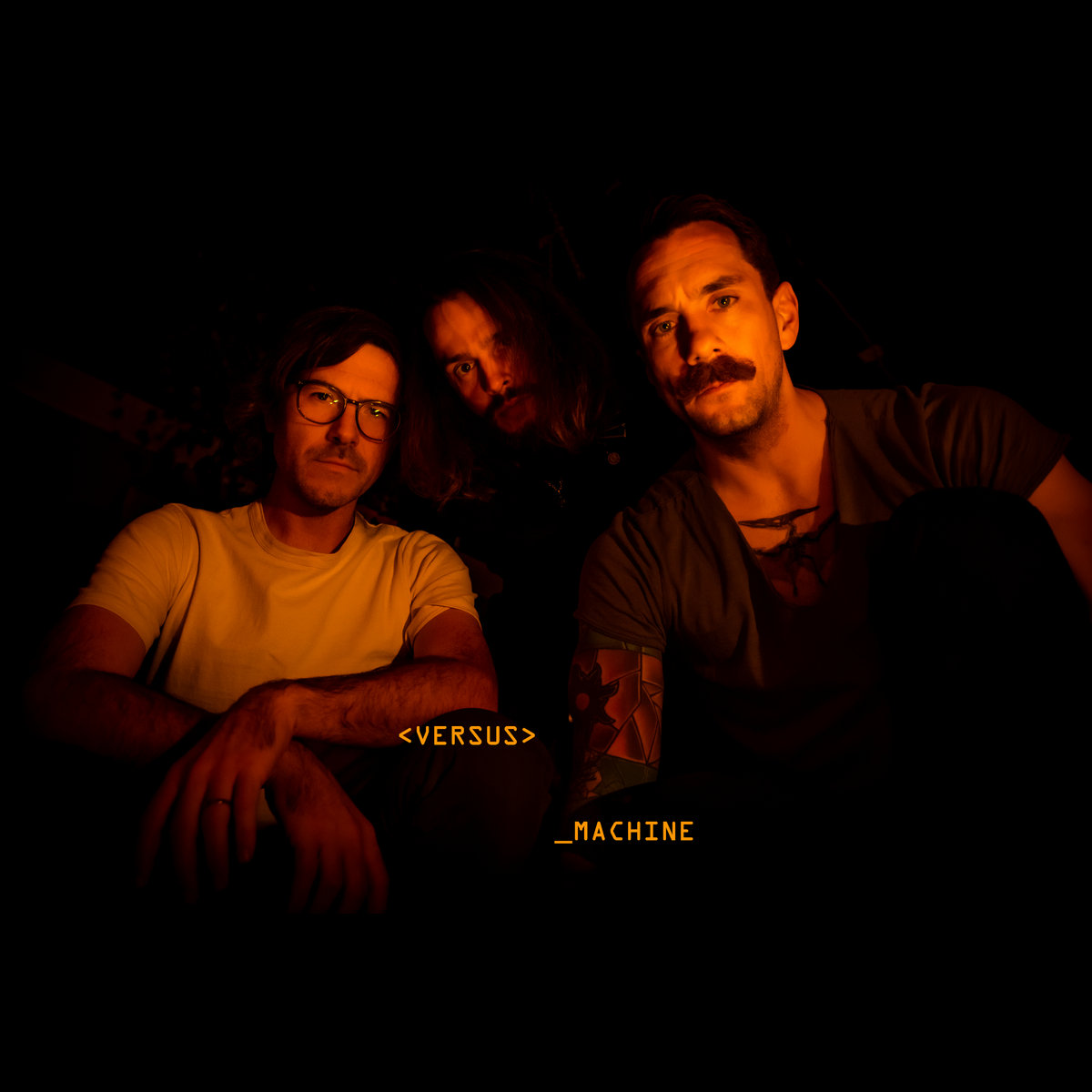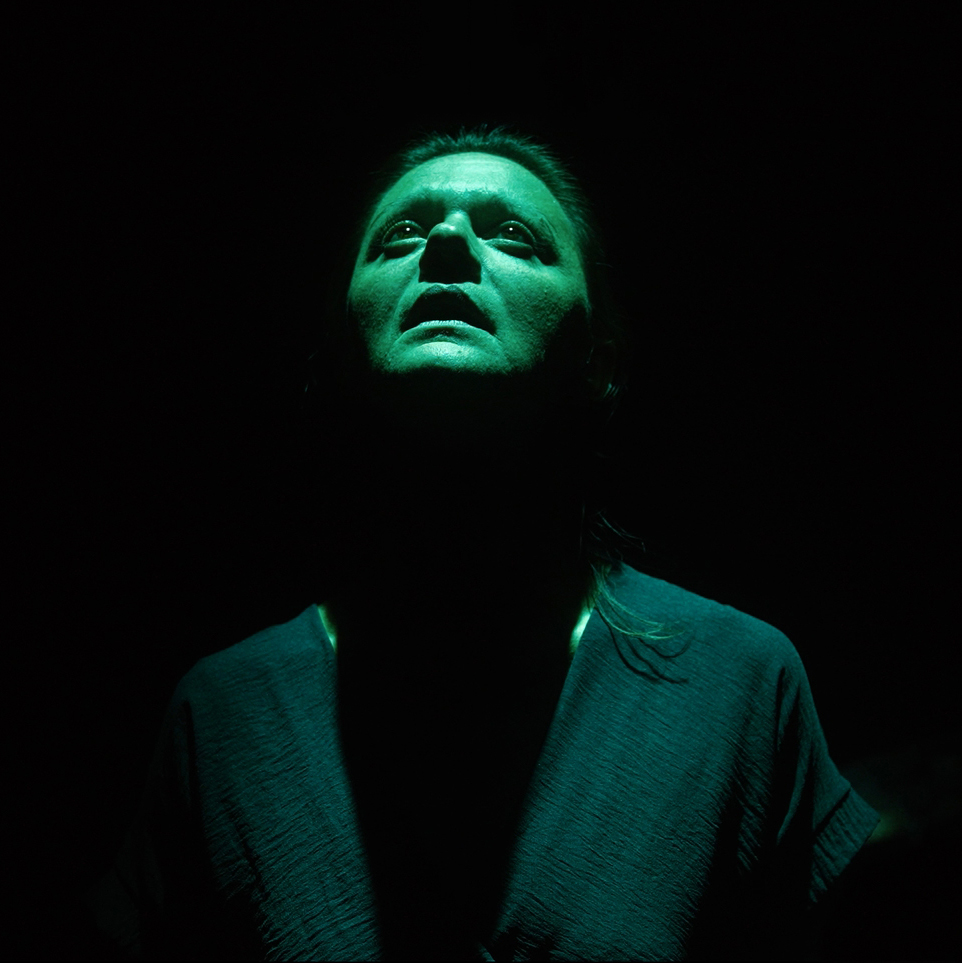Paul Roessler | Interview | New Album, ‘The Turning Of The Bright World’
Stepping out from behind the production boards and into the spotlight, the sought after producer released the most inspired album of his career ‘The Turning Of The Bright World’ via Kitten Robot Records.
Having released a handful of records previously, Roessler distills decades of experience to produce his most realized and articulate expression to date. “‘The Arc’ was written when I was 16,” he adds, reflecting on his musical output. “‘6/12’ was written, recorded, and put out in one month. ‘The Drug Years’ was recorded in my garage at home on relatively primitive gear. By the time I was doing ‘The Turning Of The Bright World’, I had been producing albums for a while in real studios. So this should sound how I want it to, not what it defaults to. At least in theory”.
On the heels of quadruple-double album epic ‘The Drug Years’, ‘The Turning Of The Bright World’ focuses on melancholia, reflections, and piano leads more so than on previous albums. “I’m always inspired to create something where I sense there is a void, where no one else is exploring that area”, explains Roessler about his impulse to record this album. “That becomes increasingly difficult with such an incredible amount of music being released every day, so it can’t be a rule or anything like that. I could say that I become inspired by the possibilities that the new technologies offer me, limitless sounds and capabilities. All of that factors in”.
A prolific producer who runs the LA production stable Kitten Robot Studios, Roessler has served as the producer/engineer on Kitten Robot releases from Josie Cotton, Eddie Spaghetti & Frank Meyer, Hayley and the Crushers, Tombstones In Their Eyes, CrowJane, and the upcoming records from Harry Cloud and Glitter Wizard.
As an artist however, Roessler wrote his first opus, the rock opera ‘The Arc’, while still in high school with his prog/classic rock influences (Yes, Jethro Tull, Frank Zappa) on his sleeve. Segueing from that genre into finding his footing in electropunk, he joined Screamers as one of two keyboardists in the guitar-less L.A.-based musical pioneers, labeled ‘punk rock’ for lack of anything more suitable.
In the 1980s, Paul started the band Twisted Roots along with Pat Smear (Germs/Foo Fighters) and his sister Kira prior to her involvement with Black Flag. Paul also partnered on music with Mike Watt (Crimony) and Dez Cadeda (DC3), as well as joining with a wide variety of artists/bands, including 45 Grave, Nervous Gender, Geza X and the Mommymen, and Nina Hagen. The subsequent years saw him join forces with Mark Curry, Prick, Leah Andreone, and Gitane Demone Quartet. Paul Roessler’s production career has also seen him produce for T.S.O.L., Richie Ramone, Pat The Bunny, and many other bands and artists.
“Each song has its own message, even if sometimes that message could never really be explained”, concludes Roessler. “I like those kinds of songs a lot. The music preached to me, and I did my best to deliver what it was saying”.
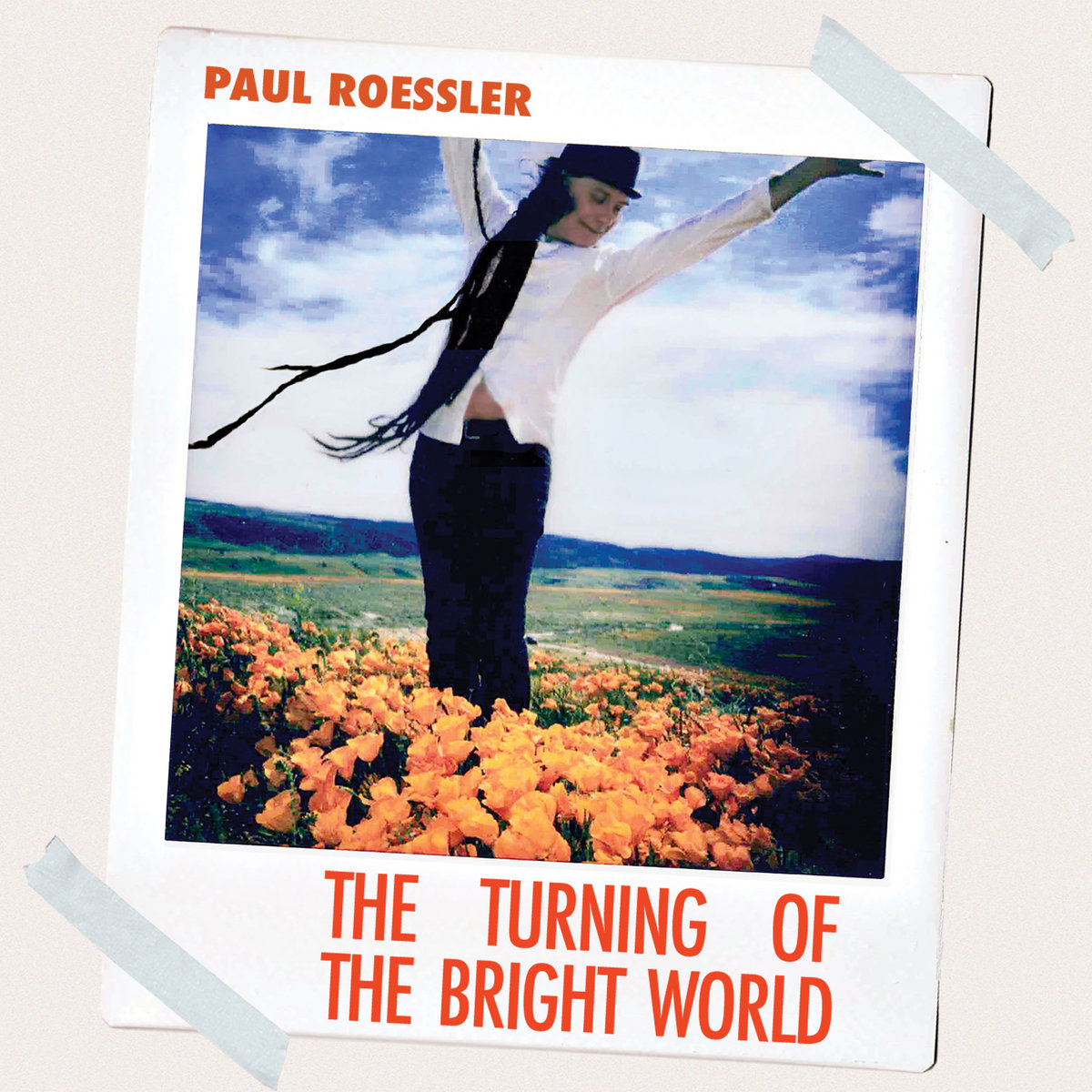
“When a song happens it has this identity of its own”
It’s really nice to have you. Tell us, what’s the story behind making ‘The Turning Of The Bright World’? How did you transcend your past in punk with the music you’re creating today?
Paul Roessler: The first wave of punks were all into different music before they were into punk, because there was no punk! Bowie, Iggy, the Dolls and the MC5 were common antecedents, but perhaps surprisingly, a fair amount of us were into progressive rock. The spirit of looking forward, experimentation and not just recreating established rock ‘n’ roll clichés was appealing to us. Outwardly perhaps, King Crimson, Yes, Frank Zappa and Jethro Tull were as diametrically opposed to the Sex Pistols as you could get. For some of us, they were exactly the same thing. Originality and rebellion. I was classically trained in piano and music theory and had written a 47 minute progressive rock opus by the time I was 16 (‘The Arc’, eventually recorded and released in 2013), but I agreed completely with John Lydon: that music had become pompous and bloated. I felt it was dishonest to deny my training, so the arc of my career has been trying to synthesize that with the (difficult at times to define) principles that came with punk rock. With ‘The Turning of the Bright World’, a lot of those punk influences are so buried that it is probably difficult for people to discern them, but for me, the consciousness shift that occurs when someone embraces the Pistols, the Germs or the Screamers can never really be reversed.
What is your creative process like when it comes to solo work?
I can create music any time I sit down to do it. It happens in a lot of different ways, sometimes from a piano, sometimes from a beat, sometimes from a sound. The process of developing those musical ideas to the final result of a song is much more difficult. I usually want the lyrics to be something that could stand on their own, and yet they have to sing effortlessly and naturally in some weird way that’s hard to describe. There are a lot of false starts and abandoned musical things. When a song happens it has this identity of its own. Really hard to force. I noticed the other day that when I try to remember actually making these songs, it’s almost a blank. Like when I do it right, I’m not even there.
Are there any songs on the album that you wrote years ago and didn’t find the opportunity to release or did you include only fresh numbers from the past few years?
The earliest songs date back to 2014. I’m always writing songs and working on things, my problem was that it was just a collection of songs…I didn’t really have a vision of the whole; what it looked like as an album. So I just kept writing, I would work on ‘The Drug Years’ when I was stuck…it’s a four double-album collection from the 90’s, recorded in my garage, demos I guess you could call them, that I was trying to polish up into a presentable form. And I got sidetracked in 2017 writing ‘Galatea’, a 21 minute song based on a book by Richard Powers. I was also producing a ton of records and playing with several bands, so it did take a while for this album to come together. But no, there aren’t really any retreads here. I thought about sticking some old songs in but eventually I had more than enough. When my wife took that polaroid on the cover of me, and I figured out what the album was called, it was done. It became clear which songs belonged and how they fit together. That took a while.
“I think I’ve always been attracted to a sort of deep emotional violence in music”
What are some of the most important musicians that influenced your own style and what in particular did they employ in their playing that you liked?
That’s a hard question. I work with some people who are referencing other music very deliberately. Everything they do, they can point to something in musical history that they are drawing from. I’m kind of the opposite. I pretend that everything I come up with has never been done before, hahaha. I have a horror of borrowing or stealing. It’s not realistic, EVERYTHING has been done in some way. I guess I’m kinda influenced by the whole history of rock; all the landmark artists from the 50’s till today. I’m not a deep digger, I kinda skim across the top. I think I’ve always been attracted to a sort of deep emotional violence in music. This is a visceral thing that I feel. Extreme emotional highs and lows. I think I have always appreciated people who have come out with something startlingly new, just when you think it’s all been done before. And I love artists that have found their voice and don’t apologize or back off it. Once I sense that an artist is going through the motions, or just trying to get a paycheck, it smells funny to me. And I think I’ve been influenced by other non-musical things. Scuba diving and living in a foreign country as a child, books, relationships…things that develop you as a human being and then come out when you create.
Where was the album recorded and what can you tell us about the recording process?
Josie Cotton and I teamed up to create this recording studio here in LA; Kitten Robot Studios. I live here with my wife, Rachel, a corgi, two cats and two guinea pigs. The studio is booked as much as I can handle. Working with so many artists has really helped take me from being a keyboard player playing in bands to being a real engineer/producer. I hold producing to be a pretty cool art. It’s like I’m a conductor and I have some input on every note and sound that happens. Without anyone noticing. All that production has enriched me as a musician. When I return to my stuff, I have some kind of expertise that comes very slowly. I wish I could have had all these skills thirty or forty years ago, but I just didn’t. And I never really worked with a producer either. I probably wouldn’t have listened to them anyway. The studio is so busy, I honestly don’t know how I was able to make this record. Holidays? The midnight to 2 am slot? Cancellations? The sad thing is, when I have a day off to do whatever I want…I tend to end up in the studio… Honestly, it’s usually me by myself in the middle of the night. It kinda sounds like that. That’s probably how it should be listened to.
Was there a particular mood you were trying to capture? A story you were trying to tell?
The concept or story behind an album usually coalesces slowly over the course of its creation. I’m more focused on the individual songs, but eventually the collection of songs becomes a greater work of art than its individual pieces, at least that’s how I look at it. I always thought one of the important principles in punk rock was a no-bullshit honesty. So I really wanted to honestly speak from who I am at this stage of life, not pretend to be the same person I was when I was in the Screamers or something. I am as old as I am, and it’s just bullshit to pretend otherwise or try to disguise it. So what can a person my age sing about and not come off as just boring and preachy? That was the challenge. I noticed that a lot of the songs seemed to be talking about death. Not surprising. There was a point where I consciously thought, fuck it, you have things you’ve learned over this lifetime. You’d better put them in there. People will just have to deal with it. A friend of mine, Brennan Foley is a philosopher and I was talking to him about an album based on all my favorite philosophers. So three or four of the songs came from experimenting with that project. I prefer them mixed in though, a whole album like that felt unsustainable to me. The songs are ‘The Only Thing That Matters’, ‘No Time’, and ‘The Last Time My Head Was Right’. They are in a folder on my computer called “Someday You Will Be Dead”, which was the working title for the philosophy album, hahahahaha.
I hope you don’t mind if we talk about the early years. What was it like for you to join The Screamers for two years (1978-80)?
Wow, that’s a whole interview in itself. When you asked earlier what artists influenced me I hemmed and hawed but the experience of joining The Screamers was a huge influence on me. I was 18 and they were older. I had been a music major at college and had practiced for thousands of hours already; their expertise wasn’t music at all. They made it very clear, and I totally agreed, that all that musical knowledge is useless if you are an asshole about it. They were very smart, very witty, and very worldly. I felt very overwhelmed, like I was a kid in a room full of grownups, which I kind of was. I also sometimes thought they were full of shit sometimes, but man, it was working. Sometimes I would stand on stage and feel like I was in one of the greatest bands in the world. Even the worst shows were still better than anything else. I did eventually come to feel that I made a strong if subtle difference. I saw that I was from a different generation, the true punks while they were really coming from the previous one. I wasn’t as into their more campy and comedic stuff, and I think I tipped the band more towards the powerful and ferocious. I played aggressively. It’s so interesting the way a band is made of different personalities coming together. While I’m a huge fan of the previous keyboard players, I’m pretty sure I at least didn’t ruin the band.
How did you first befriended Germs members Darby Crash and Pat Smear? What did the typical punk day look like? What kind of records would we find in your room?
I met them in high school. They stood out from everybody else. I was curious about Darby (Paul Beahm then). People told me to keep away from him, he would brainwash me. I eventually just introduced myself. We went to a special school called IPS that was another one of those life changing experiences. Punk rock wasn’t happening yet, I was trying to teach musicians my 45 minute song and perform it. Darby was obsessed with Bowie, Pat was obsessed with Yes and Queen. Darby wasn’t really capable of having friends, other than Pat. He wanted followers. I really loved him and felt like there was so much there…he was so intelligent, and really driven by demons in fascinating ways. I couldn’t really see at the time how truly damaged he was. He was just utterly different and unique. Eventually they started the Germs and he became the wasted martyr. Before that he was sharp as a tack, none of that slurry Germs guy that we see in old videos. That became hard to be around for me, sad. We drifted apart, although he did come to say goodbye before he killed himself. Not in words, but he visited and afterwards I realized that’s what he was doing. He was the old Paul for one night, just sadder.
I was a punk rocker but I am a pretty driven musician. I remember those days as being in a lot of bands, touring, practicing, writing, recording. When punk first started it was one of the few times in my life that I would just go to shows and hang out and see all the new bands. LA in 77-78 was quite an explosion, I didn’t want to be anywhere else. I’m sure NY and London were the same or better, but no one took us seriously so I was loyal to my own scene. The funny thing was, I didn’t like THAT much of the punk rock music. I was discovering Dylan, Hendrix, Roxy Music and Eno at that time as I remember, haha.
How did Nervous Gender come about?
I stumbled into the Hong Kong Cafe one night, probably 79 and they were playing. They were like the Germs but with synthesizers, just an absolute mess of cacophony, fantastic. Phranc was still in the band. Later she left and they had different lineups taking her place. The Screamers were sort of on hiatus and I hadn’t joined Nina Hagen yet so I played with them for a little while. I hooked a pickup to a metal street sign and ran it through effects and hit it, rolled dice on it, just nasty industrial noise. I think they made me sing a song with them, probably to embarrass me. Compared to some of these people, I’m kind of a nerdy, bougy naif. I never could really handle unrestrained decadence. Hence, I am still alive.
What about Geza X and the Mommymen?
Geza was the soundman at the masque, the first exclusively punk LA club so he was always around. A little older than us, smart and plenty crazy, but generally a sweet guy. So we hung out a lot and became pretty good friends. He toured with The Screamers as their soundman. When he started his own band he asked me and Kira to join and we did that for a while. We were HUGE fans of his previous band, The Deadbeats, who I consider THE great forgotten LA punk band. Much later, after he had produced some hits, he was the one who took me under his wing as a second engineer which eventually led me to a career in production. A huge influence on my life, for sure.
What was it like for you to play with Nina Hagen and tour EU and USA + recording legendary ‘NunSexMonkRock’?
It was a pretty big change. Nina was a real rock star in Europe. So I kinda got a taste of that life; tour buses, airplanes and hotels, body guards, press conferences, big packed halls. I felt pretty uncomfortable with it really, all this money and ego shit floating around. But it was great to see Europe for the first time, I think we did about 50 cities. We were playing a lot of the stuff that would later be on ‘NunSexMonkRock’. Nina was pregnant and there was a lot of stuff I wasn’t aware of. She had fired her German band and a lot of fans were pissed. She’s so mercurial; she seems to just make decisions from the gut without a lot of planning, all instinct. In a lot of ways it’s really admirable. But the Germans had a real love hate relationship with her, and she really didn’t give a fuck. I was just trying to ride it out, play the songs well and be a band, but she had a lot on her plate. She’s operating on all these higher levels of politics and spirituality. It’s for real. After 1983, I just felt like that life wasn’t really for me: picking up my family on a week’s notice and moving to some other country. We reunited in 1998 though, and I played with her for quite a while after that…including producing her ‘Personal Jesus’ album.
Of course for ‘NunSexMonkRock’, the label and management did what labels and management do, they brought in all different musicians and a producer to try to make a hit album. You can see how that went. She is an immovable force AND an irresistible object. They brought me in for the last two days of recording and I made them record ‘Taichi Tarot’ from scratch because I had written it and we had played it on tour. And unbelievably it made it on the album. I would probably be way too chicken now to throw my weight around like that now. And they let me kind of wail over a few other songs.
You also formed Twisted Roots with Smear and your sister Kira Roessler.
Yes. After the first tour with Nina Hagen, I was playing with a bunch of bands and my ex-wife Hellin suggested I start my own band. I didn’t really think Pat would do it, because it was close on the heels of Darby’s death, but I guess he had started playing around a bit. I had always been closer to Darby, but I seriously admired Pat’s guitar playing. I was totally into playing with my sister and she had a friend from school named Maggie that I thought would make a great front person. And I had seen Emil playing in a backyard with his band The Ozhairs and something told me he was great and I was right, even though he was only 16. So we got this great group of people together, kids really, and it honestly wasn’t my band anymore, but I had assembled this cool machine. Because we were ex-Screamers and Germs there was a lot of interest. I’m sort of proud of the band conceptually, because it stood for something; in a naïve way it kinda championed a sort of positivity, because we were all recovering from this tragedy of Darby’s death. It really took a long time for cynicism to start to be questioned in literature and art in general because it was the post-modern hipness. Not going that way is a tough thing to pull off and still be cool. So I thought Twisted Roots was kind of farsighted in that way. After that, I produced Pat’s first solo album for SST, ‘Ruthensmear’, and that’s another thing I’m really proud of. Working with Pat is revelatory, it’s no accident the trajectory his career has taken since. Not to mention working with Kira. If you go back and listen to Twisted Roots basslines, you can see why Black Flag snapped her (and Emil!) up. At 18 years old, she’s an absolute monster.
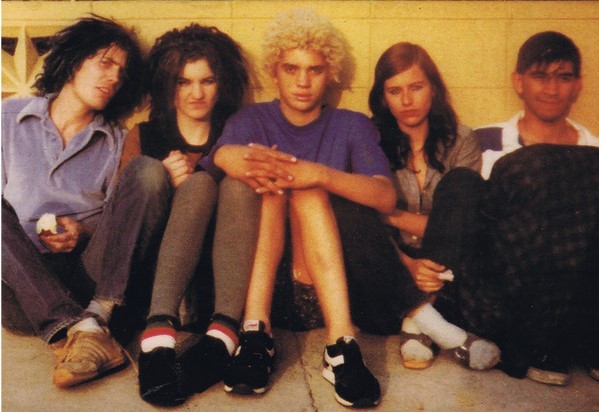
We also have to mention 45 Grave, Josie Cotton, DC3 (with Dez Cadena of Black Flag) and Crimony (with Mike Watt) as well.
I feel like I can’t do justice to these amazing artists here. I have been so lucky to have been able to be involved with them. I guess a lot of people like 45 Grave but I think if anything they’re underrated. I was there for the recordings and I guess I’m kinda all over the records, but they barely needed me. I spent years touring with DC3 and making records and it was a huge chunk of my life for a while; they are like family. What can I say about Mike Watt? Revered as he may be, I don’t think people generally have any idea how truly brilliant he is and how much he has accomplished. And Josie Cotton is one of my best friends and my partner in Kitten Robot. I have produced three albums with her and there have been so many magical moments in the creation of those. She’s another underrated genius. I guess I need to write a book, haha.
How did you first get interested in production?
Shortly after the end of high school, I discovered the four track tape recorder. From that day I have been obsessive about recording. The nature of my obsession was as a tool to write and document songs though. I really didn’t have the trained ears or interest in the engineering and mixing side of it. It’s odd to me that I could get focused enough to learn and play a Chopin etude, but not reeeeally be able to hear what a mix should sound like. But I did my best with the limited gear I had, 4-tracks and then 8-tracks and occasionally being let into real recording studios to make records. Finally thanks to Geza and Josie, I got to start working in their studio and they sort of groomed me to be the engineer and producer in their studio. Geza rightly saw that a producer shouldn’t necessarily be the one twiddling the knobs so I think he was looking to bring me in and lighten his load. What I realize now, is that one of the main motivations and goals in my life has been to have my own recording studio, where I could make records like the one I’m releasing now.
Tell us about the formation of Kitten Robot Studios and your own label. Is there a certain concept you are trying to hold on?
Well, we built the studio back in 2012. I was recording a lot of people and there was often the question of what to do with the music once it was done. I always stayed away from the label/promotion end of things. I guess I felt like if I could ever just get good at the musical end that would be a lot to have accomplished. At some point, Josie got the rights back to her 80’s albums and we were talking about rereleasing that as well as all her other stuff under one label. But then it would just be the Josie Cotton label and I think she felt kind of lonely! We brought in Bruce Duff, who I had played with in Twisted Roots and 45 Grave and who just has this unbelievable knowledge of labels and publishing, just everything. I was a bit in touch with the scene from recording and I had this Crow Jane album made that we were just sort of sitting on. I was really proud of the record, but it’s pretty different from Josie’s stuff. But Bruce and Josie wanted to put it out, and it did well. I also had a Kira album and an Inger Lorre album basically done and neither of them had any plans for release. They are all very different artists but I can’t imagine a more powerful group of women and it was neat to think of them all under one roof. Then Bruce brought in Dark Mark and Skeleton Joe, Eddie Spaghetti and Frank Meyer, and Glitter Wizard. Josie found Haley and the Crushers and Velvet Starlings. And I had been working with Harry Cloud and Tombstones In Their Eyes and suddenly it was just out of control, hahaha. But I always knew that I was going to want to put my own album out on the label eventually. I would love to say we had a concept, but I really think we default to just seeing something special that we would be proud to be associated with.
Let’s end this interview with some of your favourite albums. Have you found something new lately you would like to recommend to our readers?
It’s a funny thing when you are so immersed in the making of music. If you didn’t fall in love with what you were working on, it would probably drive you crazy because you have to listen to every song thousands of times. So it’s pretty rare for me to hear something that I’m not a part of that I fall in love with; probably one artist a year. Recently it has been Phoebe Bridgers and Ceschi. Maybe Bo Burnham, I have made something of a study of Jacob Collier, because he is mind bogglingly talented and knowledgeable. He doesn’t even attempt to do the stuff that I’m into though, really. I have friends that send me all kinds of cool stuff that really impresses me, but remember, they are competing against the experience of creating a project, which is a much more intense experience than finding or listening to one. So the switch doesn’t often flip where I become an unabashed fan. What I do know from that though, is that there are a LOT of fucking geniuses out there making music. So I can rattle off the Crow Jane record, the Kira record, The new Josie Cotton record, the new Inger Lorre, the new Harry Cloud, Tombstones In Their Eyes, Spaghetti and Frank, Haley and the Crushers…albums I have worked on and all became dear to me and a part of me. And I promise you, there are even more that I feel that way about that AREN’T on the label. I hesitate to start naming names because there are so many and I hate leaving people off, but Pat the Bunny, IGAF Sequoia, the Moon Bandits, Savannah Pope, Prissy Whip, The Lords of Altamont, The Balboas, Dropouts, Phideaux, Kesem, Los Fubars, TSOL, Egrets on Ergot, Fancy Space People, Kurt Stifle, Cherish Alexander, Fur Dixon, The Wristslitters, Haunted Garage, Gitane Demone Quartet, Rikk Agnew Band, Cliff and Ivy, Richie Ramone. I’m just going to stop there, embarrassingly leaving off equally talented dear friends.
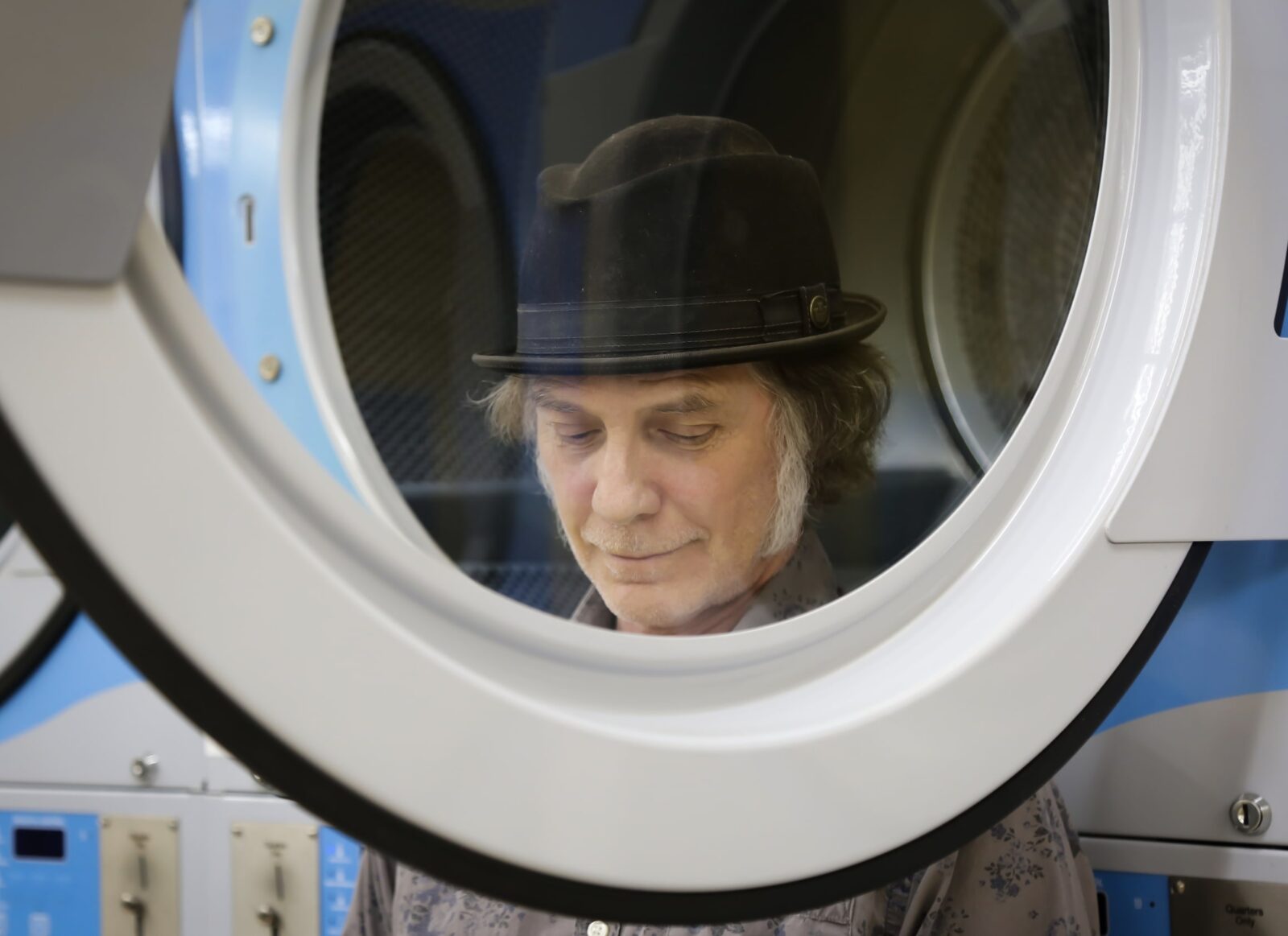
Thank you. Last word is yours.
I haven’t talked about the lyrics on this album. I have trouble broaching the conversation because it’s cool not to explain lyrics and people can get what they get from them. I always find it strange when people say, “I don’t care about the lyrics” but that explains why there are so many popular artists who don’t really try to say much. Just the visceral experience of the music is the thing. I, on the other hand, probably care too much about the lyrics. So if someone is listening to this record and thinking, “what the fuck IS this?”. It’s me reaching to find some connection through words; make some sense of the world, in a musical setting. When I decided the song was done, it’s because I thought maybe I had done that. It is my secret desire that people figure out what these songs are about, or what they’re trying to do. That is the connection that I long for: you inside my head.
Klemen Breznikar
Headline photo: Rachel Roessler
Paul Roessler Official Website / Facebook / Instagram / Twitter / Bandcamp / YouTube
Kitten Robot Records Official Website / Facebook / Instagram / Bandcamp / YouTube

